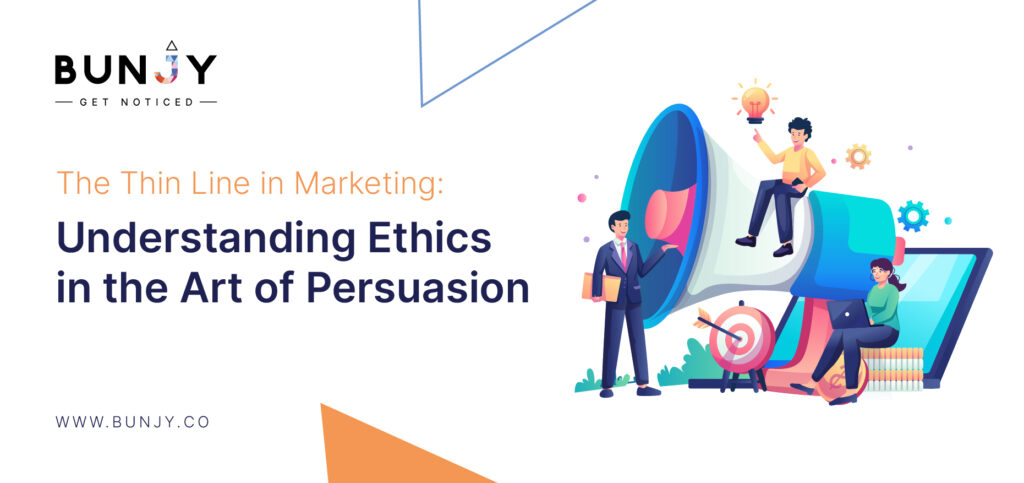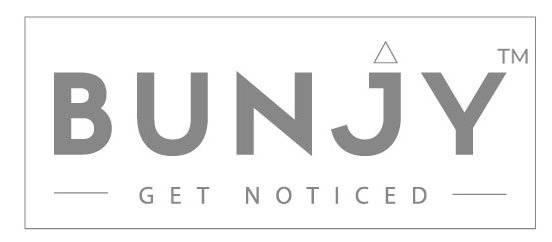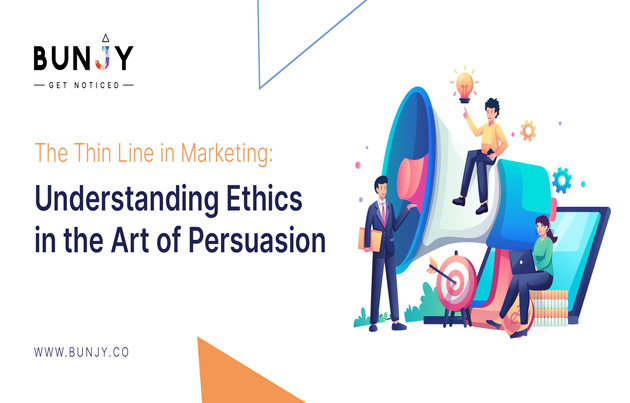- February 27, 2024
- Bunjy
- Comment: 0
- Blog, Digital Marketing, Social Media Marketing

Understanding Marketing Ethics
Marketing ethics are the moral principles that guide the behavior and decisions of those involved in marketing. It encompasses a range of issues, including truthfulness in advertising, respect for consumer privacy, and the social implications of marketing campaigns.
At its core, ethical marketing is about truthfulness. Misleading customers with false claims, exaggerated benefits, or hidden conditions is a clear violation of ethical practices. Moreover, respecting consumer privacy is paramount. In an age of data-driven marketing, how companies collect, use, and share consumer data is a significant ethical concern.
Another critical aspect is the societal impact of marketing messages. This includes avoiding stereotypes and ensuring that marketing campaigns don’t contribute to societal harm, such as promoting unhealthy body images or exploiting vulnerable groups.
Why Marketing Ethics Matter
Marketing ethics are super important for many reasons, and they really make a difference for both customers and businesses. Here’s why:
Building Trust: When companies are honest in their ads, they earn our trust. This trust is a big deal for keeping customers around for the long haul. But if a company is sneaky in its marketing, it can hurt its reputation.
Good for Business in the Long Run: Playing fair in marketing isn’t just the right thing to do; it’s also good for business over time. Companies that trick customers might get a quick win, but they can lose out big later with lost customers, legal troubles, and a bad rep.
Staying on the Right Side of the Law: Ethical marketing means following the rules and laws. This keeps companies out of legal hot water, saving them from big fines and damage to their image.
Being a Good Citizen: Companies should care about their impact on people and society. This means not using harmful stereotypes in ads or misleading vulnerable folks. It’s all about being a positive force in the community.
Avoiding Risks: Ethical marketing helps companies avoid risks like being called out for false advertising or scamming customers. By sticking to ethics, companies can protect their brand and maintain good standing.
In short, ethical marketing is all about being honest, playing fair, and doing good – both for the business and everyone else.
Oops, They Did It Again: Unethical Advertising Tactics
Sometimes, ads stretch the truth. Let’s dive into some of the sneaky ways advertising can bend the rules:
“Best Toothpaste Ever?” – Ever seen an ad claiming nearly all dentists recommend a certain toothpaste? Take that with a grain of salt – those claims might not be as rock-solid as they seem.
“Free… Until It’s Not” – How about those ads for ‘free’ games that suddenly hit you with a fee after level two? Yep, that’s another sneaky marketing trick.
“Burgers, Bigger in Ads” – Notice how that fast-food burger in the ad looks like a feast for a king but is more like a snack in real life? Or how anti-aging creams use models who barely need them? Classic case of image trickery.
“Buy Now or Regret Forever!” – Some ads really lay on the urgency, playing on your FOMO. Sure, it’s not always bad, but when it pushes you into impulsive buys with misleading time limits, that’s not cool.
“Celebrity Seal of Approval?” – Think twice before you believe a celebrity who says they love a certain energy drink. Chances are, they might not even have tried it.
“Not Quite the Truth” – Ads that claim a product is something it’s not (like totally vegan, or side-effect-free when it’s not) are playing loose with the facts.
“Ads That Turn Heads the Wrong Way” – Some ads use racy images or objectify women to grab your attention. Not only is this outdated, but it can also send the wrong message.
“Cashing in on Serious Stuff” – Ads that use serious social issues to sell products? That’s a no-go zone. Respect and sensitivity are key.
“Twisting Facts to Suit the Story” – And then there are those ads that bend the truth or manipulate data to make their product look like the next big thing.
Knowing these tricks helps us all be more thoughtful consumers and reminds businesses and agencies to keep their marketing honest and fair.
Behind the Filter: The Real Deal on Influencer Marketing Tactics
Influencers are the new secret sauce for digital marketing. They start their journeys by successfully marketing themselves and then become the ideal channel for companies to market their products. Ever seen a post and wondered if it’s an ad? Sometimes influencers aren’t super clear about what’s sponsored content and what’s just them sharing their faves. So, while scrolling through those influencer posts, it’s always good to keep a slightly skeptical eye – not everything is as perfect as it seems in Insta-land!
Another issue with influencers is that they are most often too picture-perfect, setting up some pretty high (and unrealistic) expectations. They also gloss over the downsides or side effects of whatever they are marketing. Occasionally, influencers might push products that aren’t the best choice for everyone, like those instant-fix health products aimed at young, impressionable followers.
Venturing into the Grey Zone: Examples of Unethical Marketing
Let’s look at some real-life examples where marketing didn’t quite stick to the rules.
Coca-Cola’s Vitamin Water found itself in hot water over its marketing claims. The product was promoted as a health drink loaded with beneficial vitamins. However, it was revealed that Vitamin Water also had a high sugar content, which seemed at odds with its healthy image. The incident served as a reminder of the importance of transparency in advertising, highlighting the need for companies to be upfront about what’s in their products. It was a valuable lesson in ensuring that advertising isn’t just catchy but also transparent and honest.
Recently, Poonam Pandey, an Indian actress and model, made headlines, but not for a typical reason. In February 2024, her official account shockingly announced her passing from cervical cancer. The news spread like wildfire, stirring up wild stories and reactions on social media and in the news. But here’s the twist – it was later revealed that this was a publicity stunt to draw attention to cervical cancer screenings.
This bold move by Pandey and her marketing team raised quite a few eyebrows, with many people finding it in poor taste and insensitive. It’s sparked conversations about the limits of marketing: just how far is too far when trying to get a message across? Was the stunt all about the cancer screening message or gaining more marketing mileage for the actress? Either way, she successfully made herself better known through this marketing stunt.




